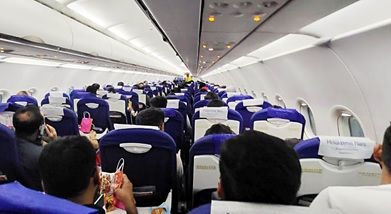India is set to increase the number of Sky Marshals on flights to sensitive destinations, according to official sources. These covert armed commandos, part of the National Security Guard (NSG), will be deployed on both domestic and international routes. This move is part of a revised civil aviation security strategy aimed at enhancing safety measures.
The NSG, established in 1984, is a federal force tasked with counter-terrorism operations. Its 52 Special Action Group (SAG), composed of Army personnel, is specifically trained for counter-hijack missions. They are equipped to handle hijack or sabotage situations by making tactical interventions on aircraft.
The number of NSG Sky Marshals is set to increase from around 40 to over 110. These commandos will operate discreetly on Indian airlines, blending in as regular passengers while carrying concealed weapons and specialised equipment. Their primary role is to combat hijackers and ensure passenger safety during potential threats.
Historically, Sky Marshals have been stationed on flights heading westward within India. However, over the past ten years, their deployment has expanded to include various sectors, including some international routes. This broader coverage aims to address evolving security challenges in aviation.
The identity of these Sky Marshals remains confidential, known only to the pilot in command (PIC) of the flight. This secrecy ensures that their presence does not disrupt normal flight operations while maintaining a high level of security readiness.
The decision to enhance the presence of Sky Marshals aligns with a reviewed counter-hijack policy. This policy aims to strengthen aviation security by deploying specially trained personnel on flights deemed sensitive due to potential threats. This strategic move underscores India’s commitment to safeguarding its airspace and ensuring passenger safety amid growing global security concerns. By increasing the number of Sky Marshals, India aims to deter potential threats and respond effectively if incidents occur.








